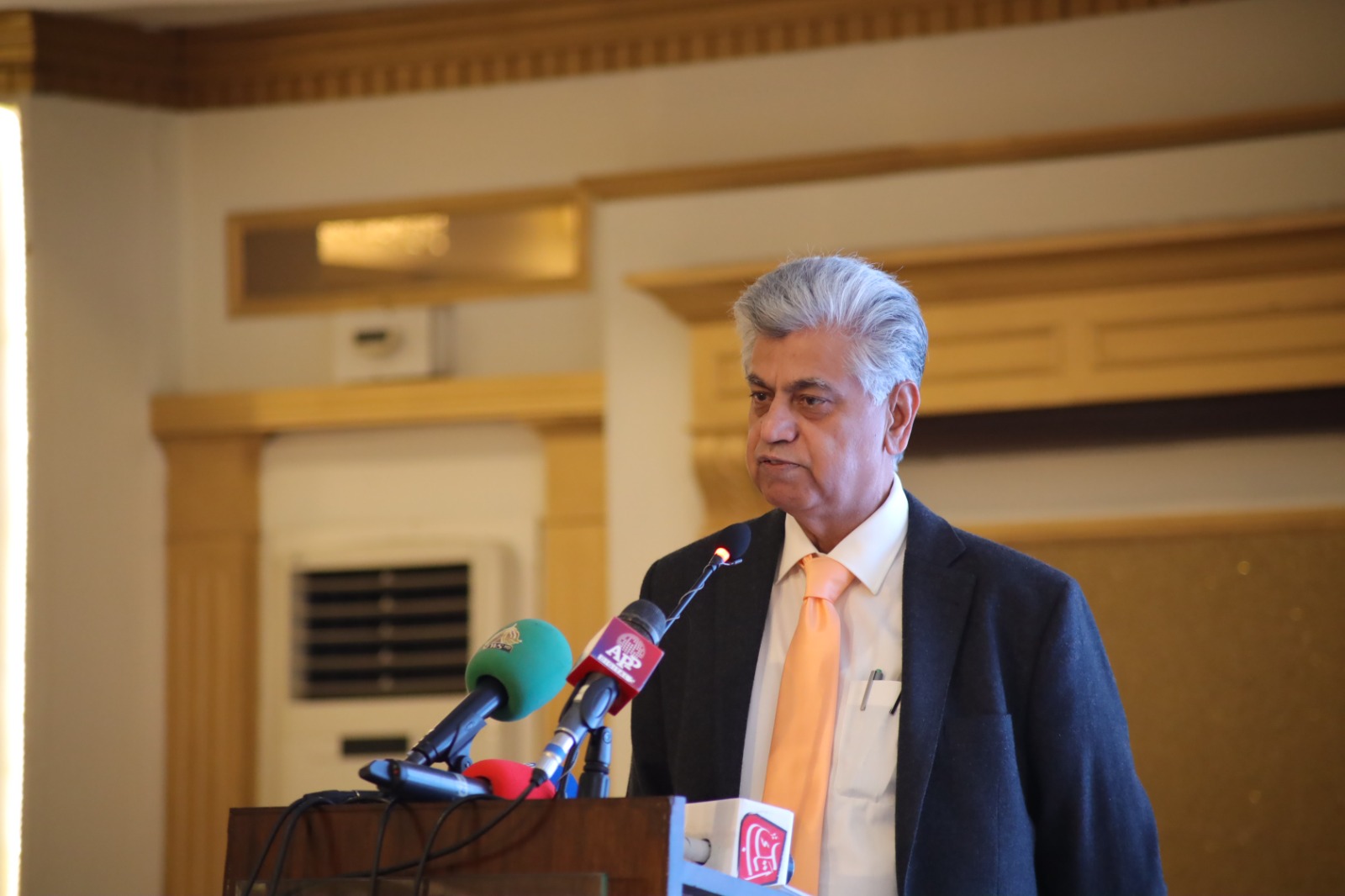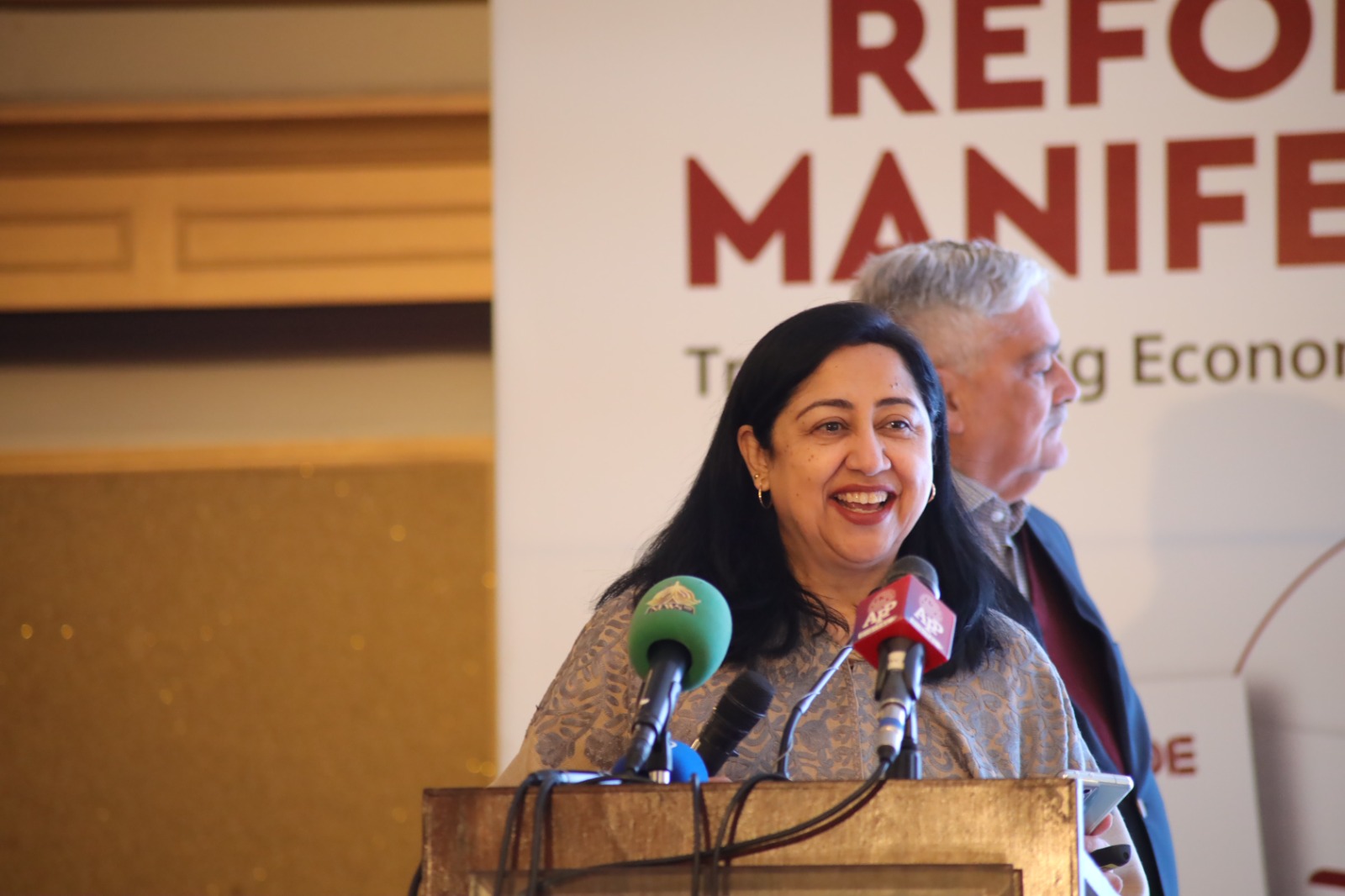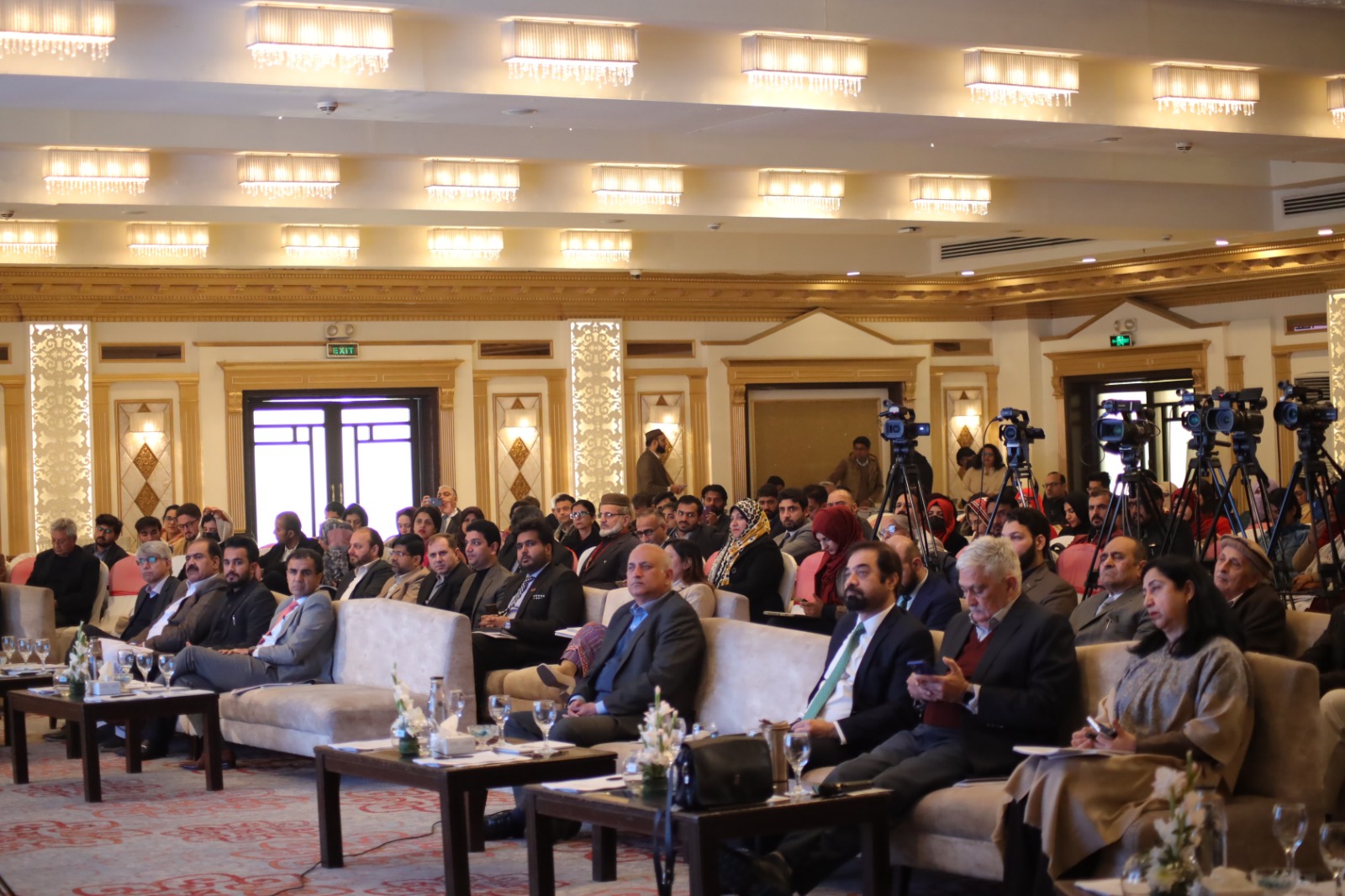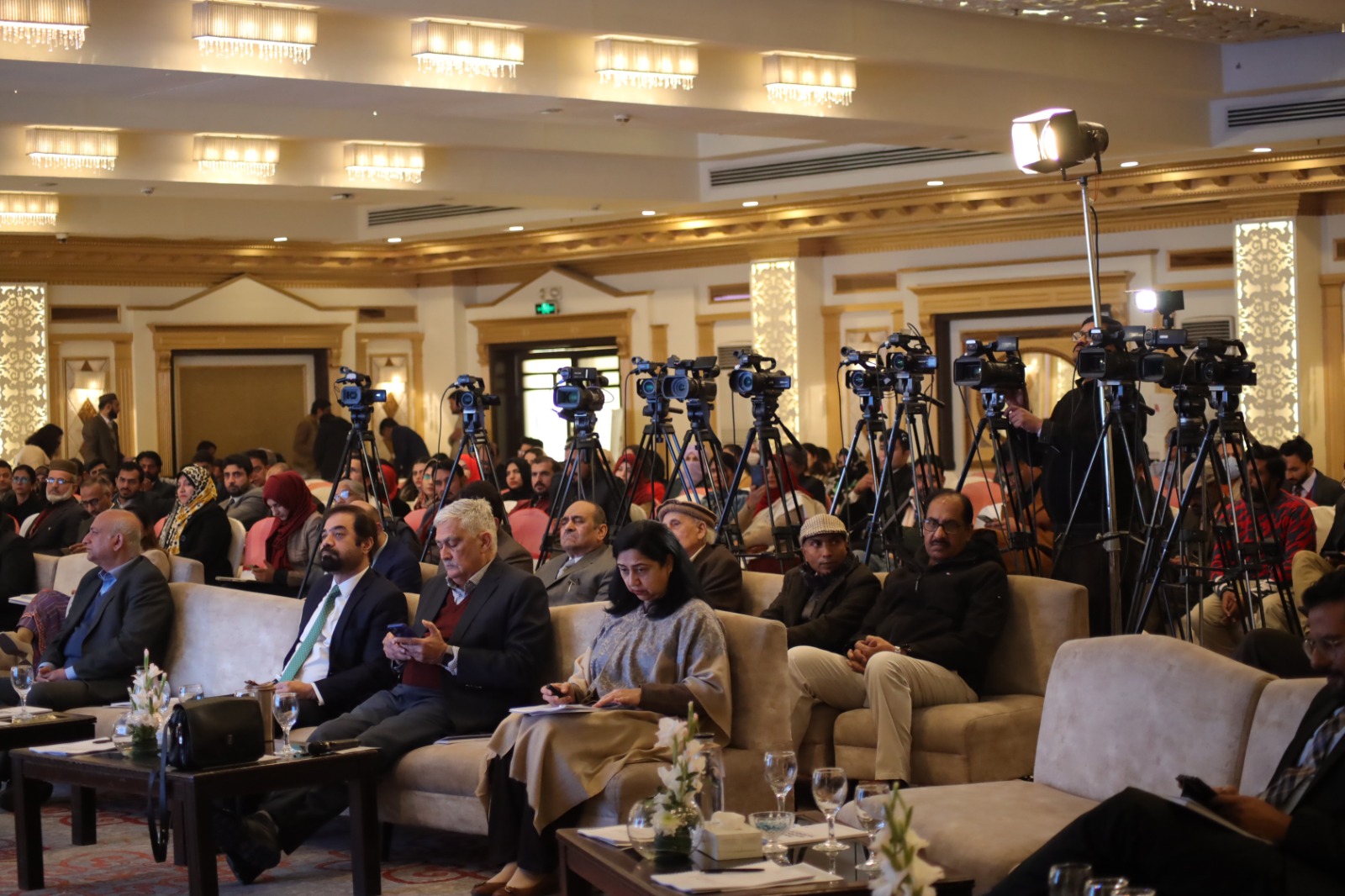PIDE Launches Report for Socio-Economic Transformation
News Desk
Islamabad: The Pakistan Institute of Development Economics (PIDE) launched on Monday what it called ‘a game-changing’ report to transform the economic landscape and societal fabric of the country.
PIDE believes that the manifesto is not just a document but “a visionary road map poised to revolutionize both the economic landscape and societal fabric of Pakistan,” a news release said.
The report titled “PIDE Reform Manifesto: Transforming Economy and Society” is based on four years of research, various conferences, seminars, and consultative meetings.
Delving into the core imperative of implementing substantial reforms, the comprehensive report is is a compelling call to action for a brighter future, shaping a narrative of progress and transformation in the heart of Islamabad. While speaking at the launching event, Minister for Information, Broadcasting, and Parliamentary Affairs Murtaza Solangi said, PIDE Vice-Chancellor Dr Nadeem ul Haque expressed serious concerns over the confronted national economic challenges that persisted despite 24 International Monetary Fund (IMF) programs.
While speaking at the launching event, Minister for Information, Broadcasting, and Parliamentary Affairs Murtaza Solangi said, PIDE Vice-Chancellor Dr Nadeem ul Haque expressed serious concerns over the confronted national economic challenges that persisted despite 24 International Monetary Fund (IMF) programs.
Excessive government regulation, Solangi said, particularly from a bureaucratic system inherited from colonial times, hampered the formal market, with the government’s interference estimated at 64 percent of the economy.
Additionally, he said a regulatory cost of up to 45 percent of gross domestic product (GDP) further restricted investment opportunities.
Despite these challenges, he said, “the hope lies in Pakistan’s youthful population, yearning for change. ”Dr Haque’s proposed deep reforms advocated for a complete overhaul of governance structures, including the bureaucracy, judiciary, and democratic systems, to harness the potential of the 21st century. “This transformative vision emphasizes the need for markets to function efficiently, talent to be nurtured, and the country to evolve with the times.” PIDE Pro Vice-Chancellor Dr Durre Nayab highlighted the critical challenges faced by Pakistan, emphasizing that addressing the changing demography and managing the escalating debt burden requires sustained and elevated economic growth.
PIDE Pro Vice-Chancellor Dr Durre Nayab highlighted the critical challenges faced by Pakistan, emphasizing that addressing the changing demography and managing the escalating debt burden requires sustained and elevated economic growth.
According to PIDE estimates, the demographic bulge is projected to persist until 2056, necessitating the addition of over two million new jobs annually for the next thirty years. Dr Nayab stressed that achieving and maintaining an economic growth rate well above 7 percent annually was imperative to meet this demand.
PIDE’s research indicates that a comprehensive strategy of deep reforms is essential for fostering the necessary growth. Dr Nayab also expressed concern over declining productivity, particularly in export and subsidy-seeking sectors, urging concerted efforts to reverse this trend for sustained economic prosperity. In a candid statement, PIDE Senior Research Economist Dr Ahmed Waqar Qasim highlighted the significant challenges posed by civil bureaucracy operating within a system devised during colonial times. Emphasizing the outdated nature of bureaucratic structures and policy processes, he expressed concern over their incapacity to effectively address the complexities of the modern world.
In a candid statement, PIDE Senior Research Economist Dr Ahmed Waqar Qasim highlighted the significant challenges posed by civil bureaucracy operating within a system devised during colonial times. Emphasizing the outdated nature of bureaucratic structures and policy processes, he expressed concern over their incapacity to effectively address the complexities of the modern world.
Dr Qasim further highlighted the bureaucratic hurdles impeding growth, innovation, and development. “Unnecessary regulatory burdens, dead capital, and policy control hinder progress, creating a management system resistant to professionalization and modernization.”
He criticized the outdated human resource management system, which prioritized seniority over achievements and performance, maintaining archaic training and payment structures.
Dr Qasim called for urgent reforms to align the management system with the needs of the 21st century, emphasizing merit-based evaluations and dismantling the antiquated practices hindering genuine talent from contributing effectively to the public sector. In presenting a vision for the future, the manifesto advocates for a comprehensive overhaul of the governance system, including reforms to the bureaucracy, judiciary, and democratic structures. “The goal is to create an environment conducive to nurturing talent and enabling markets to function more effectively, leveraging the potential of Pakistan’s youthful demographic.”
In presenting a vision for the future, the manifesto advocates for a comprehensive overhaul of the governance system, including reforms to the bureaucracy, judiciary, and democratic structures. “The goal is to create an environment conducive to nurturing talent and enabling markets to function more effectively, leveraging the potential of Pakistan’s youthful demographic.”
Looking ahead, the manifesto calls for a radical re-evaluation of policy-making, governance, and business practices, stressing the necessity for a continuous process of reform, driven by learning and evolution, to address the deep-rooted social and economic problems facing Pakistan.
The report encourages political parties, the media, and civil society to actively engage in discussions surrounding these proposed reforms. “It underscores the importance of embracing change as a societal norm to pave the way for a more prosperous and sustainable future for Pakistan.”
The event brought together a diverse array of stakeholders, including policymakers, practitioners, professionals, the business community, private-sector investors, analysts, academics, researchers, policy experts, and youth representatives.

Comments are closed.